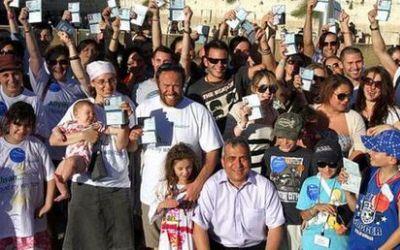National identity - Israeli
But while Netanyahu’s motivation can be explained by his obsessive desire to Judaize Israel and not to allow its minorities to “feel at home,” it is hard not to wonder what exactly the basis was for the court’s determination that there is no such thing as an Israeli nationality [with the Population Registry’s use of the term “nationality” referring not to citizenship but rather to ethnic identity]. Does it not suffice that a group of people lives together for decades in a country called Israel, to call this people “Israeli”? The creation of Israeli literature, Israeli art, Israeli music, Israeli theater, Israeli humor, Israeli politics, Israeli sports, an Israeli accent, Israeli grief – are all of these not enough to speak of an “Israeli people”?
Israeli identity, which is still crystallizing, consists of a whole mosaic of faiths, opinions and tastes; it is not monolithic and homogenous and it is immersed in deeper-than-ever conflict that sometimes seems insoluble. But that is no reason to strike at the very existence of Israeli identity. On the contrary, these are its characteristics and these are precisely the contemporary definitions that sustain it. On the eve of Independence Day 2014, the citizens of Israel can and should be proud of it.

